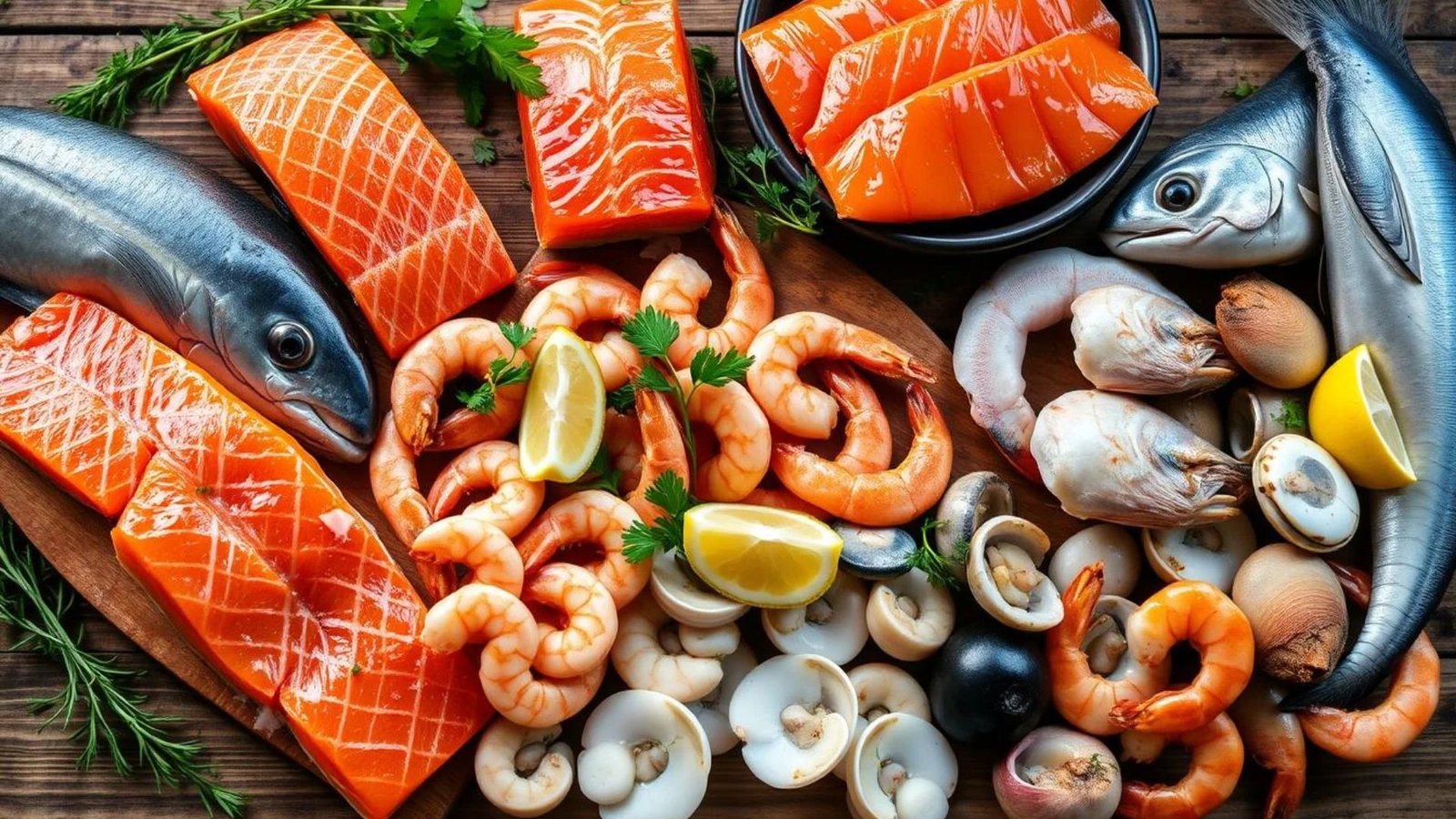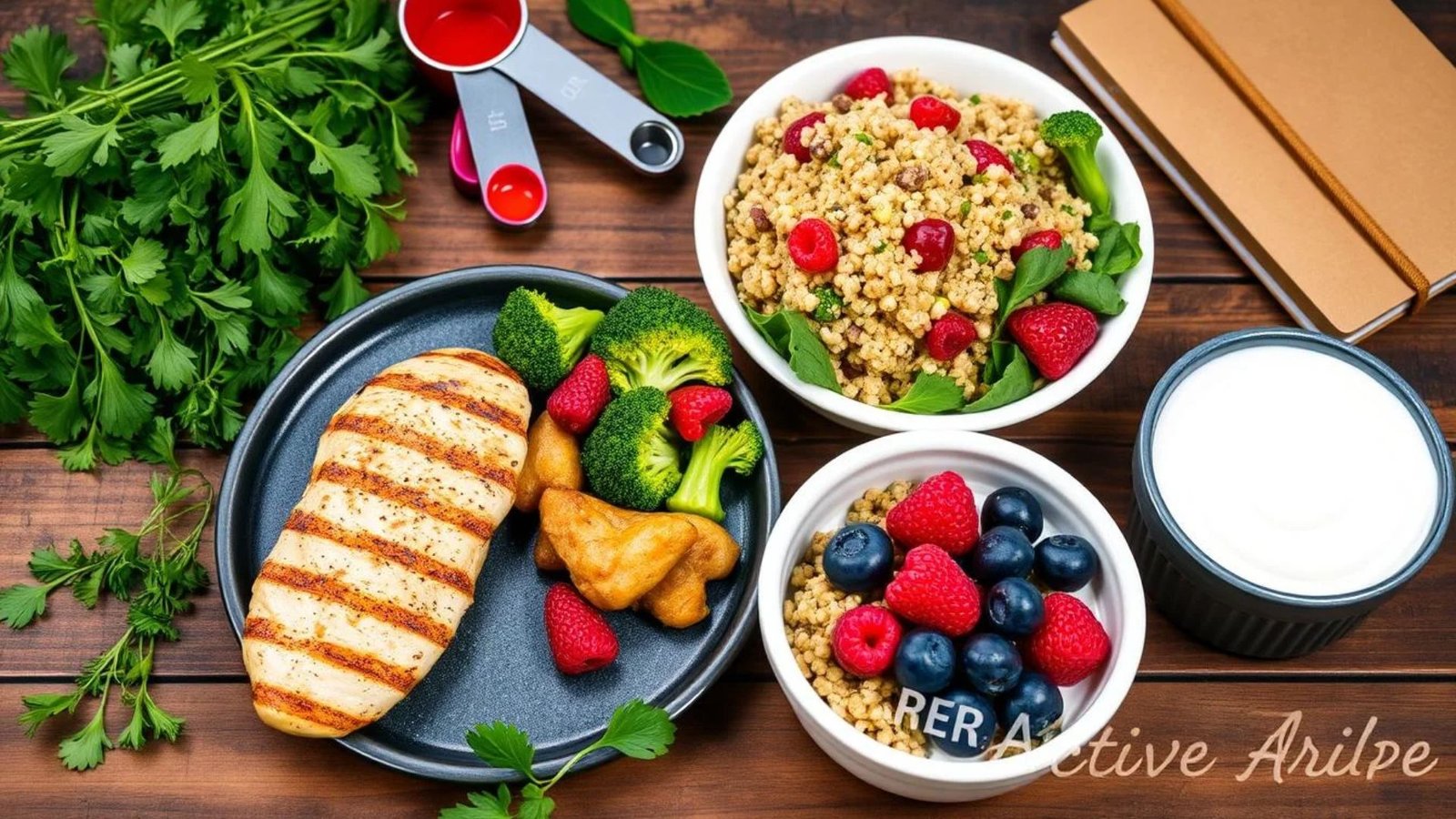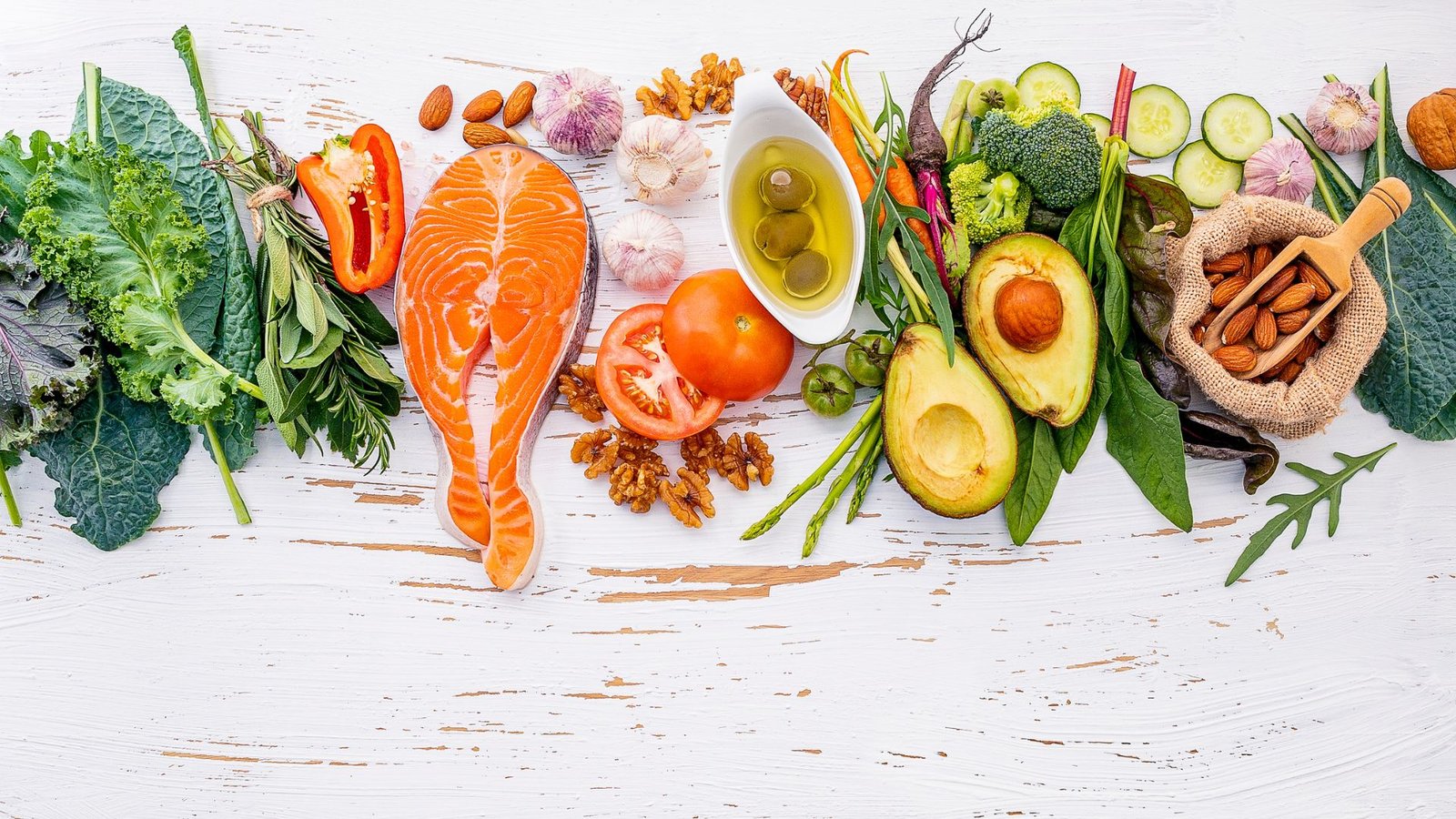I stood before my mirror, struggling to button my favorite jeans. I knew it was time for a change. I started eating low calorie high protein foods. They helped me lose weight and gave me lots of energy.
Lean meats and egg whites became my favorites, and Greek yogurt was my go-to snack. This guide is about my journey to better health. I hope it inspires you, too.
We’ll explore foods that help with weight and muscle growth. We’ll look at fish, dairy, and plant-based foods. They’re all low in calories but high in protein. Finding the right balance is critical.
Key Takeaways
- Low calorie high protein foods support weight management and muscle growth
- Lean meats, fish, eggs, and dairy are excellent protein sources
- Plant-based options provide protein for vegetarians and vegans
- Recommended protein intake ranges from 10-35% of daily calories
- Consuming up to 2g of protein per kg daily is safe for healthy adults
Importance of Low Calorie High Protein Foods
A high protein diet helps with weight and muscle growth. It focuses on low calorie high protein foods. This makes your diet better for your health.
Benefits of a High Protein Diet
Protein-rich foods make you feel full, which can help you eat fewer calories and manage your weight better. They also help grow and maintain muscles, which is good as we age.
Recommended Protein Intake
How much protein you need depends on your age, sex, and goals. Men should eat at least 56 grams of protein a day, and women should aim for 46 grams. For losing weight and maintaining muscle, it is best to eat 1.2-2 grams of protein for every kilogram of body weight.
| Gender | Minimum Daily Protein | For Weight Loss/Muscle Retention |
|---|---|---|
| Male | 56 grams | 1.2-2 g/kg body weight |
| Female | 46 grams | 1.2-2 g/kg body weight |
Balancing Protein and Calories for Weight Management
It’s important to balance protein with calories for weight control. Foods like chicken, fish, and legumes are the typical low calorie high protein foods, helping you lose weight while keeping your muscles strong.
“Choosing lean meats and dairy for protein consumption can aid in weight loss.”
Eating various foods, including whole grains, fruits, and vegetables, is also key. This ensures you get all the nutrients you need for good health and weight management.
Low Calorie High Protein Foods
Eating foods high in protein but low in calories is good for you. Let’s look at some tasty options full of protein but not too many calories.
Lean Meats and Poultry
Lean meats are full of protein. A 3.5-ounce cooked chicken breast has 32 grams of protein and only 158 calories. Turkey breast is also great, with 30 grams of protein and 147 calories per 3.5-ounce serving.
Fish and Seafood Options
Fish and seafood are great for lean protein. White fish has 19 grams of protein per 3.5-ounce serving, with just 134 calories. Shrimp is even better, with 22.8 grams of protein and only 119 calories in the same size.

Plant-Based Protein Sources
For those who like plant-based foods, tofu and edamame are great. A half-cup of firm tofu has 21.8 grams of protein and 181 calories. One cup of shelled edamame has over 18 grams of protein and 188 calories.
Dairy and Egg Products
Dairy and eggs are good for protein. Two large eggs have 12.5 grams of protein for 145 calories. Greek yogurt is also high in protein, with a 5.5-ounce portion of nonfat plain Greek yogurt providing 16 grams of protein and only 92 calories.
| Food | Protein (g) | Calories |
|---|---|---|
| Chicken Breast (3.5 oz) | 32 | 158 |
| White Fish (3.5 oz) | 19 | 134 |
| Firm Tofu (0.5 cup) | 21.8 | 181 |
| Greek Yogurt (5.5 oz) | 16 | 92 |
Adding these low-calorie, high-protein foods helps you meet your protein needs without too many calories. This balance is key for a healthy weight and overall wellness.
Incorporating Low Calorie High Protein Foods into Your Diet
Meal planning is key to a balanced diet. For breakfast, start with oatmeal and Greek yogurt. A half-cup of dry oats has 154 calories and 5 grams of protein, and a cup of nonfat Greek yogurt adds 150 calories and 25 grams of protein.
For lunch, try chicken noodle soup and blueberries. A half-cup of condensed chicken soup has 60 calories and 3 grams of protein, while a cup of blueberries has 86 calories and 3.6 grams of fiber. This combo keeps you full without too many calories.

Dinner can include lean proteins like cod or chicken breast. A 3-ounce cod serving has 13 grams of protein for under 60 calories. Four ounces of cooked chicken breast has 32 grams of protein and 163 calories. Add sides like lentils or baked potatoes for a complete meal.
Don’t forget snacks rich in protein. Hard-boiled eggs, cottage cheese with fruit, or air-popped popcorn are great. They help keep hunger away and stop you from overeating at your next meal.
- Hard-boiled egg: 72 calories, 6 grams protein
- 1 cup low-fat cottage cheese: 163 calories, 28 grams protein
- 1 cup air-popped popcorn: 31 calories, 1.2 grams fiber
Adding these low-calorie, high-protein foods to your meals and snacks helps you stay healthy and manage your weight.
Conclusion
Eating a lot of protein is key to healthy eating and maintaining a good weight. Studies show that eating less but enough protein helps keep your metabolism and muscles strong. In India, adding foods like chicken, beans, and fish to your diet can improve your meals.
More protein helps you lose weight and keep it off, which is very helpful for overweight people. Not getting enough sleep and feeling stressed can make you gain weight. Eating less but with more protein can help you sleep better and feel less stressed.
Every person’s path to health is different. While eating protein is essential, don’t forget to exercise, sleep well, and handle stress. These changes help you live a healthier life for the long term.
FAQ
What are the benefits of a high-protein diet?
High-protein diets help with weight loss and prevent obesity. They make you feel full and eat less. Protein also burns more calories when you eat it.
It helps keep your muscles and bones strong. This is important as you get older.
How much protein should I consume daily?
The U.S. Dietary Guidelines say eat 10-35% of your calories as protein. Also, eating 1.2g of protein for every kg of your body weight helps keep muscles and bones strong.
What are some good low-calorie, high-protein food options?
Lean meats like beef flank steak and pork tenderloin are great. So are skinless chicken breasts. Fish like flounder and shrimp are also good.
Black beans, edamame, and tofu are good for plant-based diets. Greek yogurt, cottage cheese, and egg whites are also rich in protein.
Can you provide examples of balanced, protein-rich meals and snacks?
For a meal, try Greek yogurt with berries and nuts. Scrambled egg whites with spinach and cheese is another good choice. Quinoa and grilled chicken salad are also tasty.
Hard-boiled eggs, cottage cheese with fruit, or roasted chickpeas are great for snacks.
Why is it important to balance protein and calorie intake?
It’s vital for weight management and health. Eating enough protein and managing calories helps with weight loss and muscle growth. It’s good for your overall health, too.
Anil’s infectious enthusiasm and wealth of knowledge make him a natural motivator. Through his guidance and support, Anil has helped countless individuals transform their lives, empowering them to lead more vibrant and fulfilling lives.



